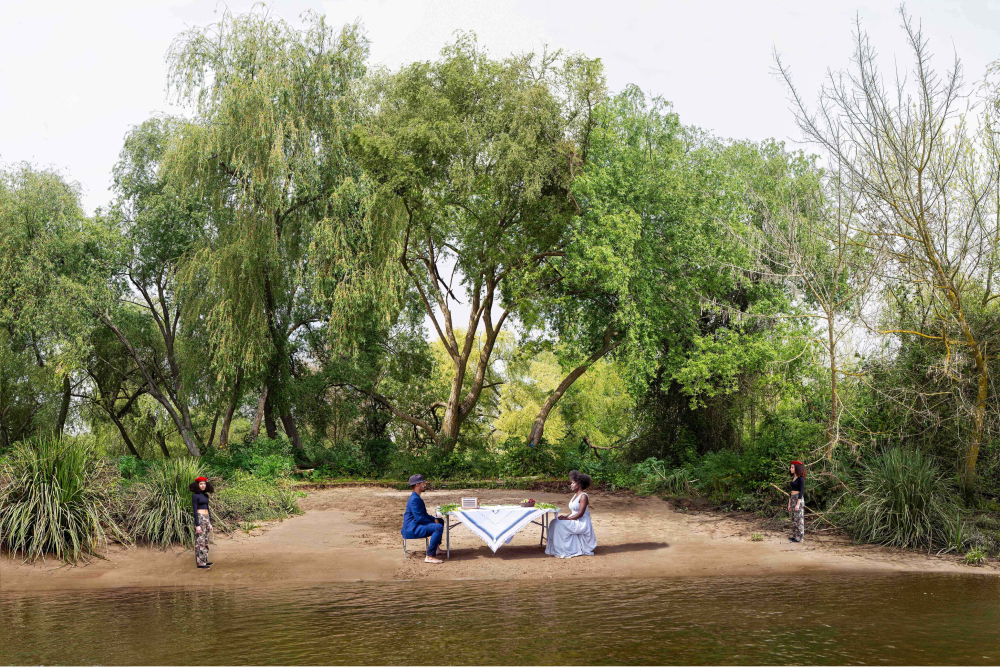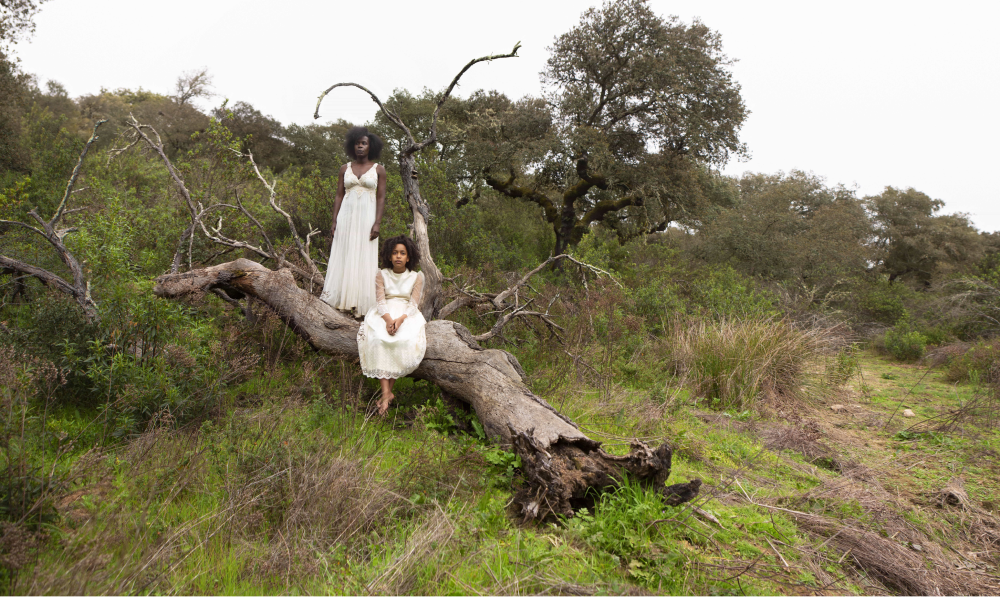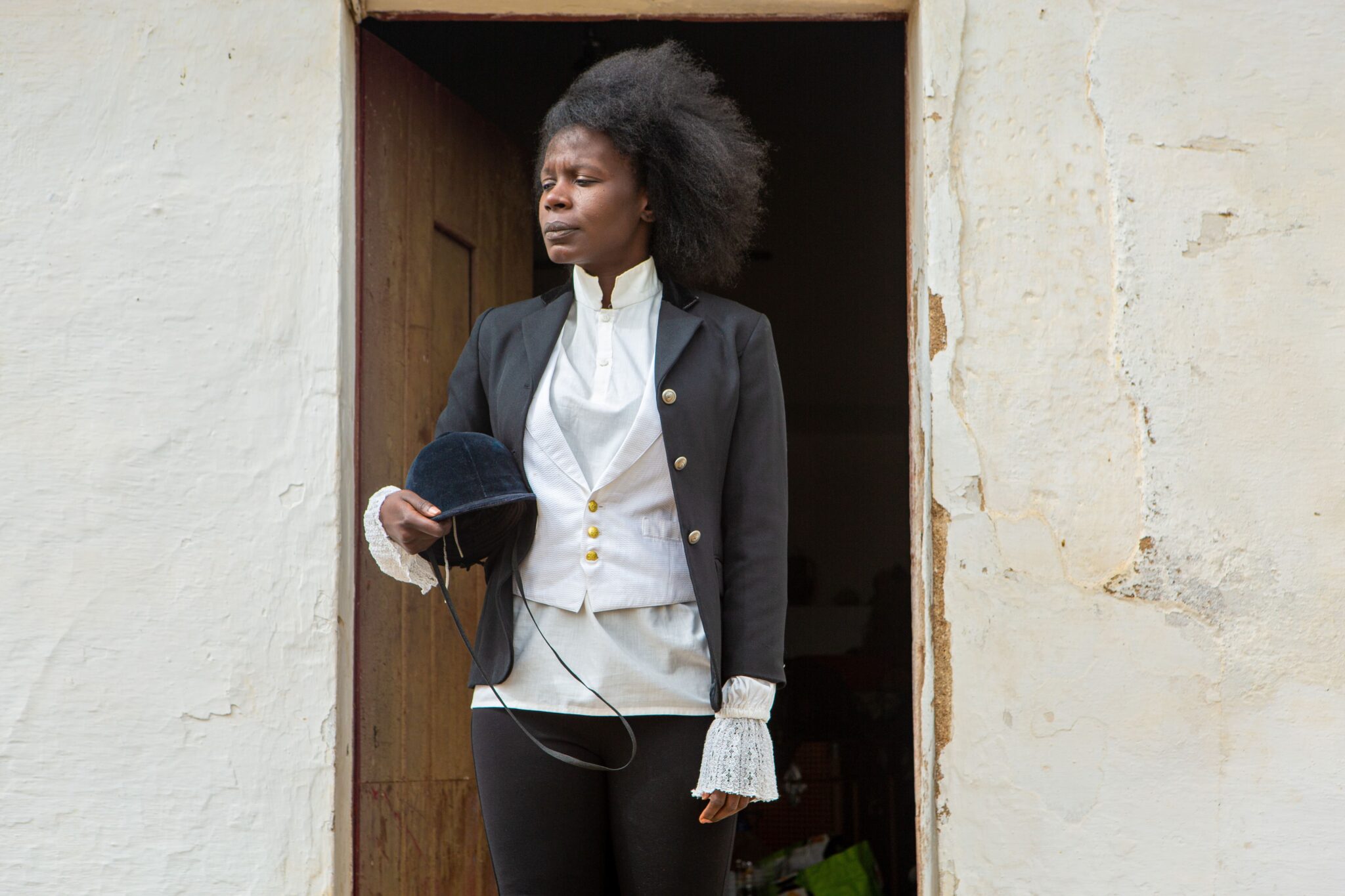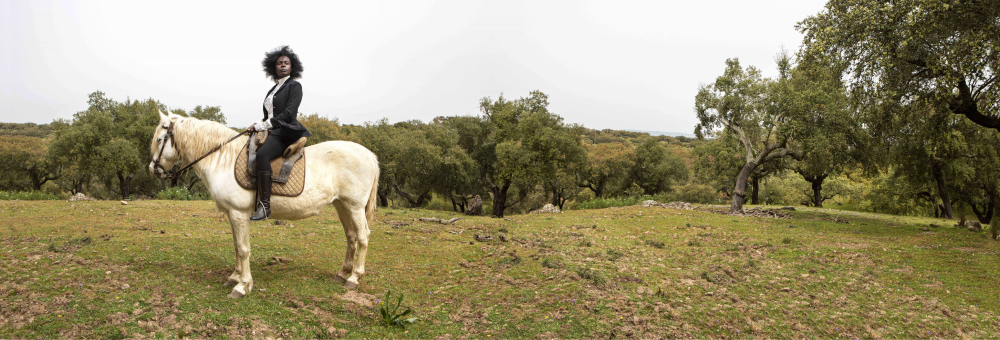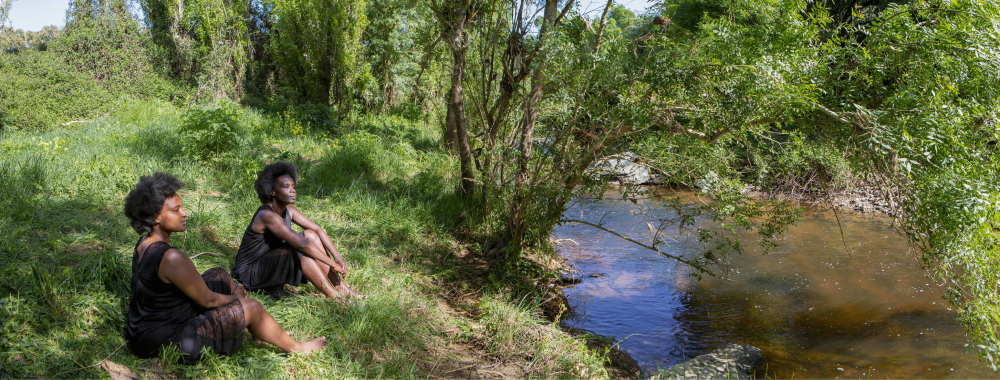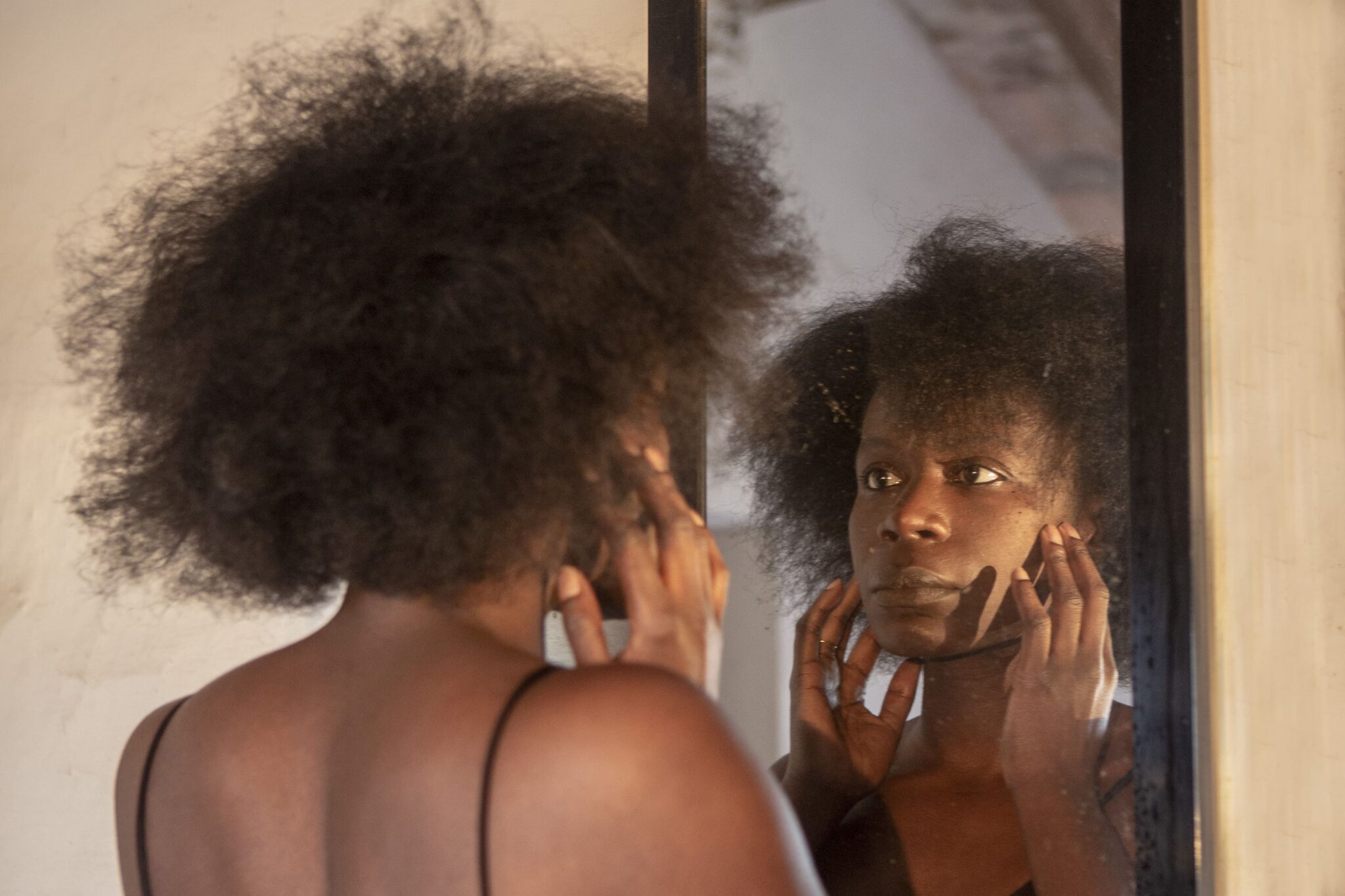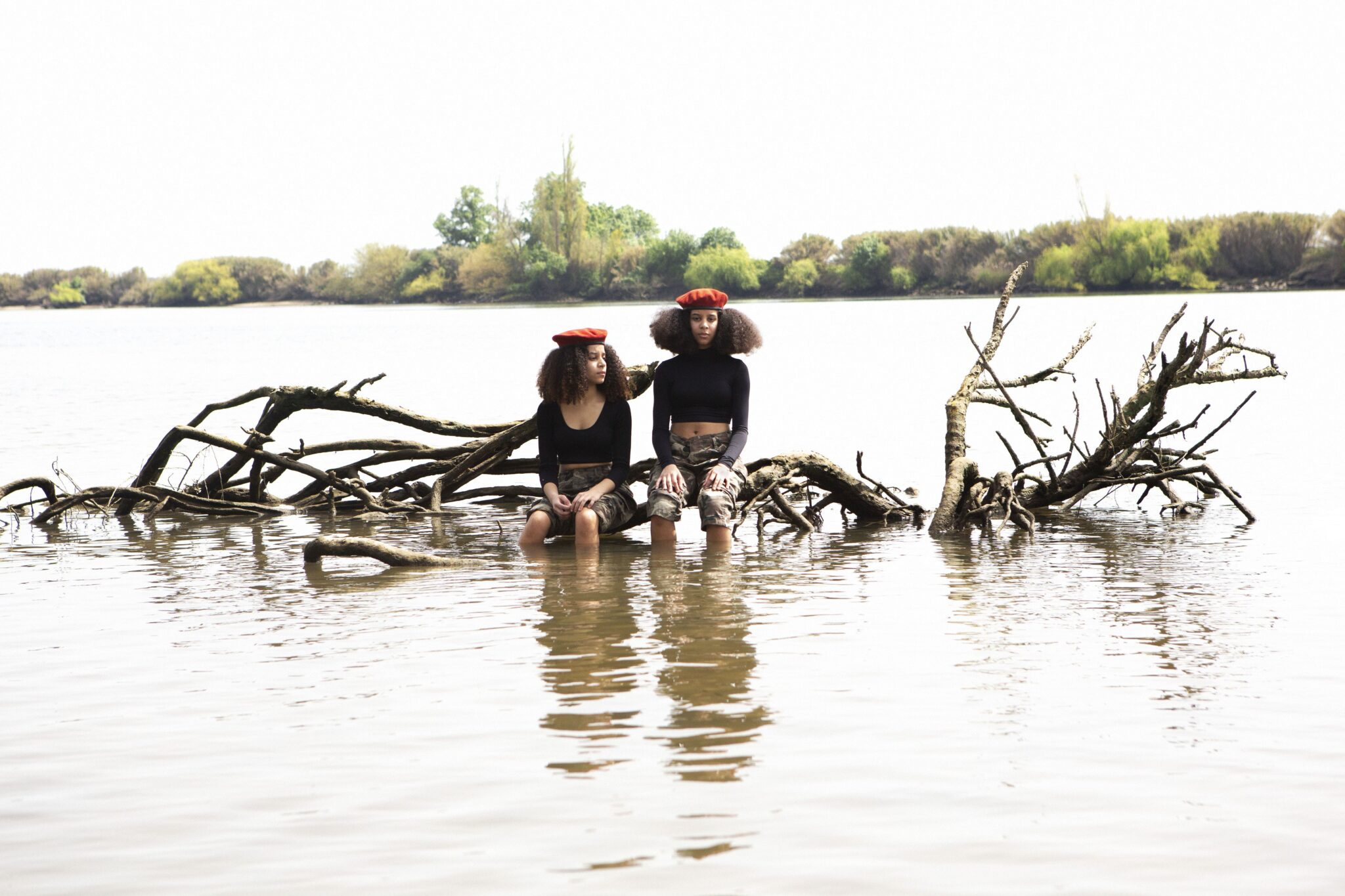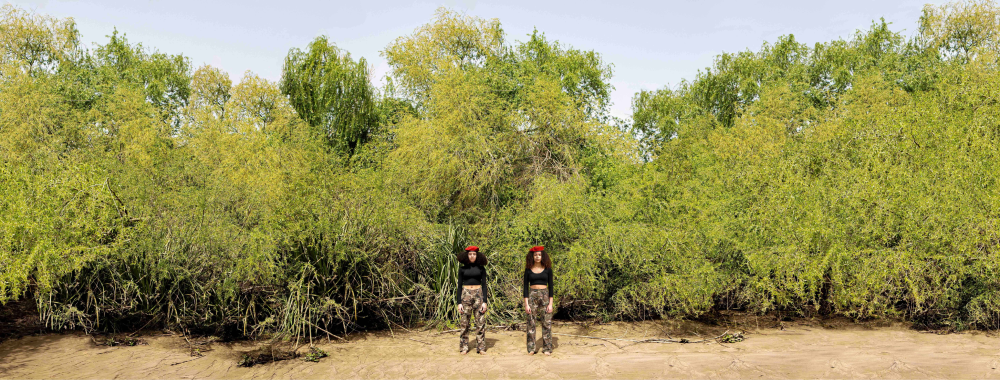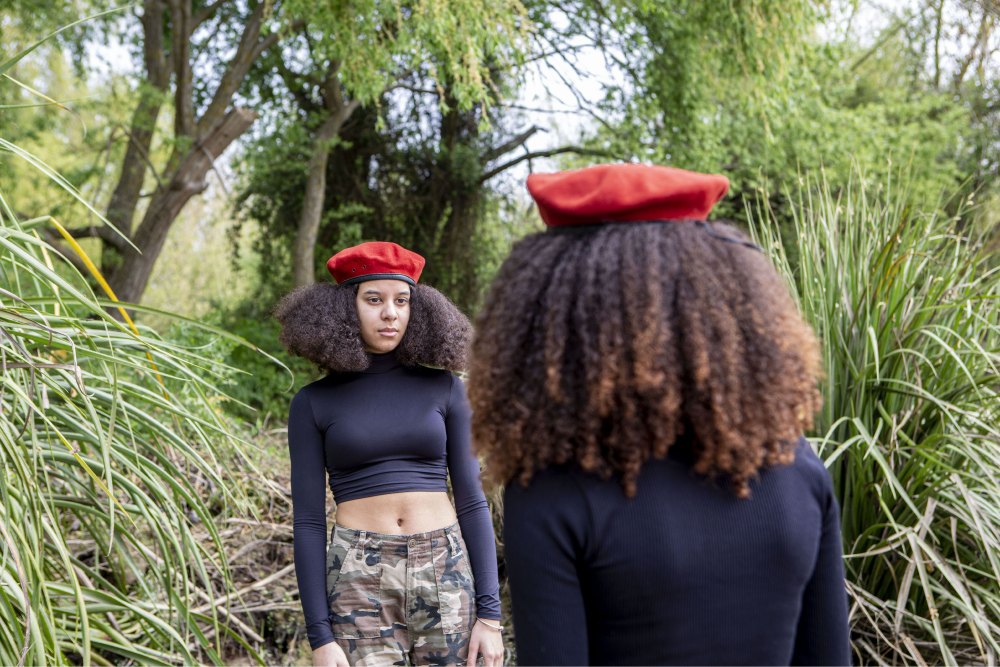Mónica De Miranda
Europe
Portuguese-Angolan visual artist, filmmaker, and researcher. Mónica de Miranda combines politics, gender, space, and history in an interdisciplinary body of work that lies somewhere between documentary and fiction. Her award-winning work brings together drawing, installation, photography, film, and sound, always with a focus on resistance, affective geographies, and ecologies of care. Her featured series, The Island delves into decolonial ecology, exploring the spiritual and metaphysical connections among humans, soil, territory, and natural resources, while revisiting the history of enslaved Black communities along Portugal’s Tagus and Sado rivers from the 15th to 18th centuries. It navigates the African diaspora’s complex narratives within European colonial history through an eco-feminist and Black feminist perspective, offering a metaphorical space that embodies isolation, refuge, and utopian ideals of freedom.
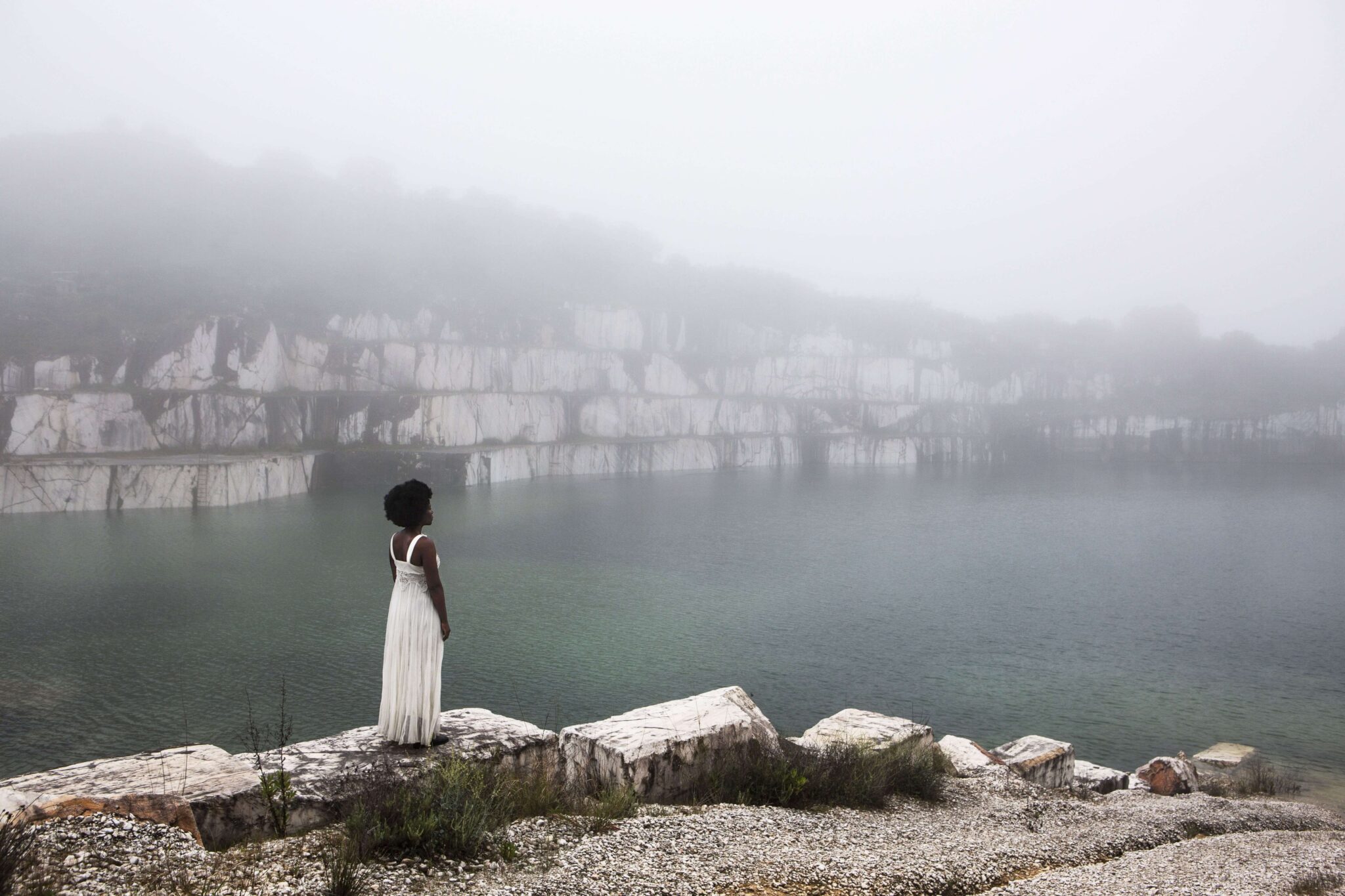
© Mónica de Miranda, Whistle for the wind
Exploring the legacy of colonial structures of power, the afterlife of slavery, the oppression of women and their interconnectedness with nature, Mónica de Miranda’s expansive and poetic practice – which encompasses film, photography, installation, sculpture, and sound – pivots around themes of resistance and liberation, ecological justice, feminist histories, and racial struggles. Frequently casting nature as a space of nourishment and healing, Mónica de Miranda’s complex work considers how nature has been instrumentalised by colonial powers through the violent processes of extraction, the subjugation of women and other marginalised communities and the overlooked Black histories of Portugal.
About the series
“The Island explores decolonial ecology, addressing the spiritual and metaphysical connections between humans, soil, territory and natural resources, while simultaneously reviving and recapturing the memory of enslaved Black communities that inhabited Portugal’s Tagus and Sado rivers in former rice cultivation lands during the 15th to 18th centuries.
The works contemplate the complex experiences of the global African diaspora within the history of European colonialism. Interweaving factual and fictional narratives, The Island explores a long trajectory of Black presence in Portugal, drawing from African liberation movements, migratory experiences, and identity formations through a Black feminist lens. It is a metaphor for a utopian place of isolation, refuge, and escape: a space for collective imaginaries that speak to new and old forms of freedom. The body of work is anchored in an eco-feminist perspective that prioritizes diversity and care considering soil as an organic repository of time and memory, where ancestral and ecological trauma linked to colonial excavations continue to unfold. The film is a fabulation of real stories and, in a way, a manifesto to find another space and future that oppose hegemonic power structures and the persistence of these systems of oppression today. Symbols and narratives provide a safe space where new ecologies of care can be built between ourselves and the earth.
As human beings, we impose uniformity on the land, create walls of division and separation, and uphold notions of private property that distance our species from the natural law of diversity to which all beings belong. The Island rethinks Black history and identity in European history, offering a debate around ecology, nature, and place, addressing an important contemporary challenge: climate change in the age of the Anthropocene. The series explores forgotten narratives by bringing a counter gaze to colonial and patriarchal history, and, in parallel, creates space for questions about belonging and the construction of identity in the contemporary era. The Island draws attention to pertinent matters of agency by foregrounding modes of imaginative and intersectional world-building through subtle references of racialized, spatial, and temporal cartographies with imbued symbolisms. It urges us to consider different modes of being in order to develop an astute conscious- ness between the past, our bodies and the (is)lands we inhabit, and everything they hold towards regenerative and possible futures.” – Mónica de Miranda
Biography
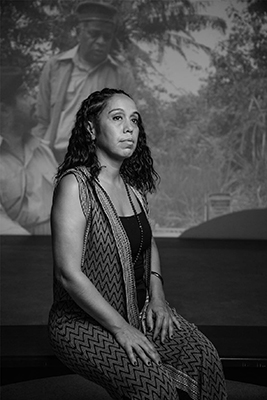
Founder of Hangar (2014), an art and research centre in Lisbon (Portugal). Hangar’s programmes provide spaces where artists, curators and researchers mainly from the global south can co-create and build creative and social networks to benefit their communities.
Winner of the Idealista Award for Contemporary Art 2023
Recipient of the Open Society Arts’ Fellowship 2023 centered around the theme « Art, Land and Public Memory »
Nominated in 2019 for the EDP Prize at the MAAT Museum (Lisbon)
Exhibitions at CAIXA Cultural – Rio de Janeiro, Bildmuseet – Umeå, Kadist Art Foundation – Paris, Gulbenkian – Lisbon, MUCEM – Marseilles, AfricaMuseum – Tervuren, MAAT – Lisbon, MUAC – Mexico City, Barbican – London, Autograph – London, Frac pays de la Loire – Nantes, Uppsala Museum – Sweden, MNAC – Lisbon, Camões Cultural Institute – Luanda, among others
Her work has been presented at major international events such as: 6th Lubumbashi Biennale; 12th Berlin Biennale; 12th Dakar Biennale; 5th Biennale Internationale de l’Art Contemporain de Casablanca; Bamako Encounters – 13th African Biennale of Photography; 14th Venice Architecture Biennale; BIENALSUR 2021; Houston FotoFest 2022; 18th Fotografia Europea – Reggio Emilia.
